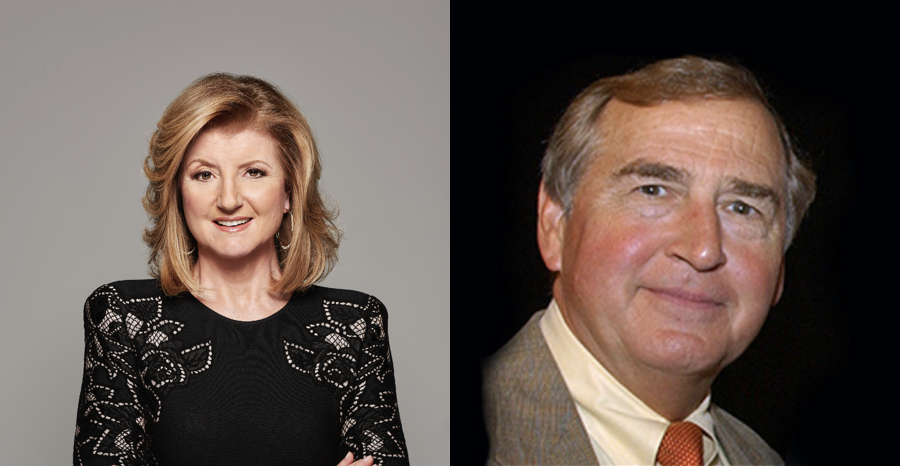The United States and China have reached a precarious moment in their relationship. Ensuring a peaceful outcome will be the greatest geopolitical challenge of the twenty-first century. Are our leaders up to it?
As things stand today, the risks seem only to be escalating. US President Donald Trump’s administration has imposed economic sanctions on Chinese entities with financial ties to North Korea, because it does not believe that China has done enough to constrain the North Korean regime. And, as Trump has said bluntly, if the Chinese don’t deal with North Korea, he will. As North Korea inches closer to developing a nuclear-tipped missile that can hit the continental US, Trump has threatened the country with “fire and fury like the world has never seen.”
China, for its part, rejects what its foreign ministry has called the “China responsibility theory” regarding North Korea. A recent editorial in a Chinese state-run newspaper assertedthat while China would stay neutral if North Korea attacked first, US strikes aimed at regime change would cause China to intervene. The Chinese also responded furiously to the passage of a US naval warship through disputed waters in the South China Sea last month, a move that the foreign ministry called a “provocation” that “severely undermines China’s sovereignty and security.”
While these issues are modern, the underlying political dynamic is not new. Describing a similar power struggle in classical Greece, the historian Thucydides wrote that, “It was the rise of Athens, and the fear that this instilled in Sparta, that made war inevitable.”
Across the ages, the so-called Thucydides Trap has appeared repeatedly, fueling tensions between rising and reigning powers that caused otherwise manageable events to fuel cycles of action and reaction that ended in devastating wars. Over the last 500 years, in 16 cases where a rising power threatened to displace a ruling power, 12 led to war. The US and China should take note: business as usual is likely to produce history as usual.
But, beyond dire warnings, history offers instructive clues for avoiding conflict. Consider the seemingly insurmountable dilemma faced by US President Franklin Roosevelt in 1940, when the United Kingdom was under serious strain in its fight against Nazi Germany. The UK’s supplies and money were running low, but Roosevelt knew that the US Congress would never simply loan Britain the money it needed.
Roosevelt’s problem “seemed insoluble,” writes historian Doris Kearns Goodwin in her book No Ordinary Time. But Roosevelt did something that would seem inconceivable in today’s political climate: he took a ten-day break on a navy ship, and gave the predicament the thought it deserved.
Then, too, the idea of the US president escaping from the world at a critical juncture initially drew criticism. “I didn’t know for quite a while what he was thinking about, if anything,” Roosevelt aide Harry Hopkins later said. “But then – I began to get the idea that he was refueling, the way he so often does when he seems to be resting and carefree. So I didn’t ask him any questions. Then, one evening, he suddenly came out with it – the whole program.”
Hopkins was referring to the groundbreaking $50 billion Lend-Lease Act, which became the primary means by which the US provided military aid to foreign countries during World War II. Through that program, the president could transfer defense materials for which Congress had appropriated funds to the government of any country whose defense was considered vital to US security, without requiring compensation.
Today, leaders are under extraordinary pressure to apply similarly inspired decision-making skills to an array of daunting challenges. Beyond deepening tensions between China and the US, they must confront Russia’s growing assertiveness, the Middle East’s continued instability, and the looming specter of catastrophic climate change. How many have the courage to learn from Roosevelt’s approach?
It is hard to imagine Trump following in FDR’s footsteps. But to insist that the most certain path to potentially catastrophic decisions begins with an exhausted, intemperate mind is not a partisan observation.
The Stoics understood this. In his 19 years as Rome’s emperor, Marcus Aurelius faced nearly constant war, a horrific plague, and a coup attempt. But instead of lashing out at those he presumed were against him, Aurelius calmly asked himself, “Does what’s happened keep you from acting with justice, generosity, self-control, sanity, prudence, honesty, humility, straightforwardness, and all other qualities that allow a person’s nature to fulfill itself?”
Chinese wisdom offers another helpful perspective. Central to Taoism is the concept of wu wei, which can be literally translated as “non-action,” but is really much more than that. In Taoism, when we are in a state of harmony and connection with ourselves, we operate in a kind of effortless, intuitive, and spontaneous way.
Looking back on his own presidency, Bill Clinton recognized the dangers of burnout. “Every important mistake I’ve made in my life, I’ve made because I was too tired,” he once said. David Gergen, in his book Eyewitness to Power, detailed the costs of Clinton’s undisciplined rest habits in the first period of his presidency. “Clinton was still celebrating the victory and loved staying up half the night to laugh and talk with old friends,” he wrote. This had a visible impact on the president, who according to Gergen, “seemed worn out, puffy, and hyper,” as well as “out of sorts, easily distracted, and impatient.”
Creating the time and the space needed to recharge, refuel, and reflect is essential for the human operating system to function optimally. That is not a systemic bug; it’s a powerful feature – one that leaders today should be using to its fullest extent.
This article was originally published by Project Syndicate.



